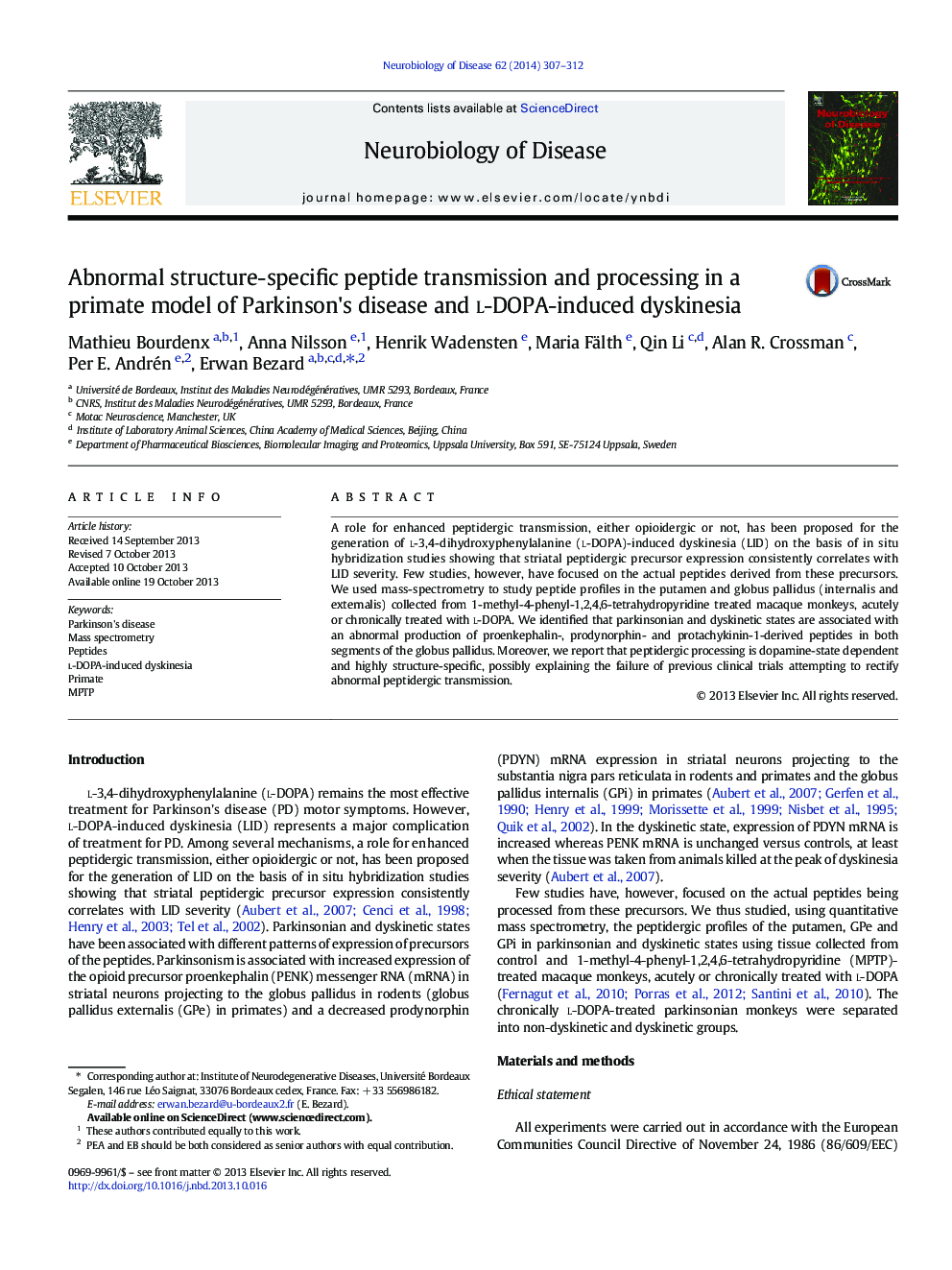| کد مقاله | کد نشریه | سال انتشار | مقاله انگلیسی | نسخه تمام متن |
|---|---|---|---|---|
| 6022034 | 1580662 | 2014 | 6 صفحه PDF | دانلود رایگان |

- Parkinsonian and dyskinetic states are associated with an abnormal peptide production.
- Peptidergic processing is dopamine-state dependent and highly structure-specific.
- Striatofugal pathways are not as segregated as previously though, at least in primates.
A role for enhanced peptidergic transmission, either opioidergic or not, has been proposed for the generation of l-3,4-dihydroxyphenylalanine (l-DOPA)-induced dyskinesia (LID) on the basis of in situ hybridization studies showing that striatal peptidergic precursor expression consistently correlates with LID severity. Few studies, however, have focused on the actual peptides derived from these precursors. We used mass-spectrometry to study peptide profiles in the putamen and globus pallidus (internalis and externalis) collected from 1-methyl-4-phenyl-1,2,4,6-tetrahydropyridine treated macaque monkeys, acutely or chronically treated with l-DOPA. We identified that parkinsonian and dyskinetic states are associated with an abnormal production of proenkephalin-, prodynorphin- and protachykinin-1-derived peptides in both segments of the globus pallidus. Moreover, we report that peptidergic processing is dopamine-state dependent and highly structure-specific, possibly explaining the failure of previous clinical trials attempting to rectify abnormal peptidergic transmission.
Journal: Neurobiology of Disease - Volume 62, February 2014, Pages 307-312